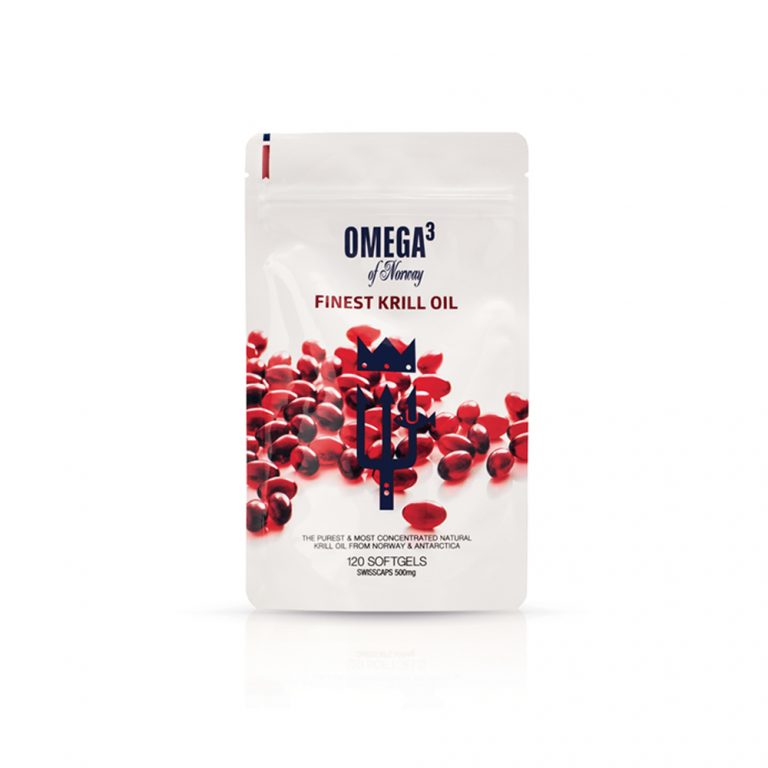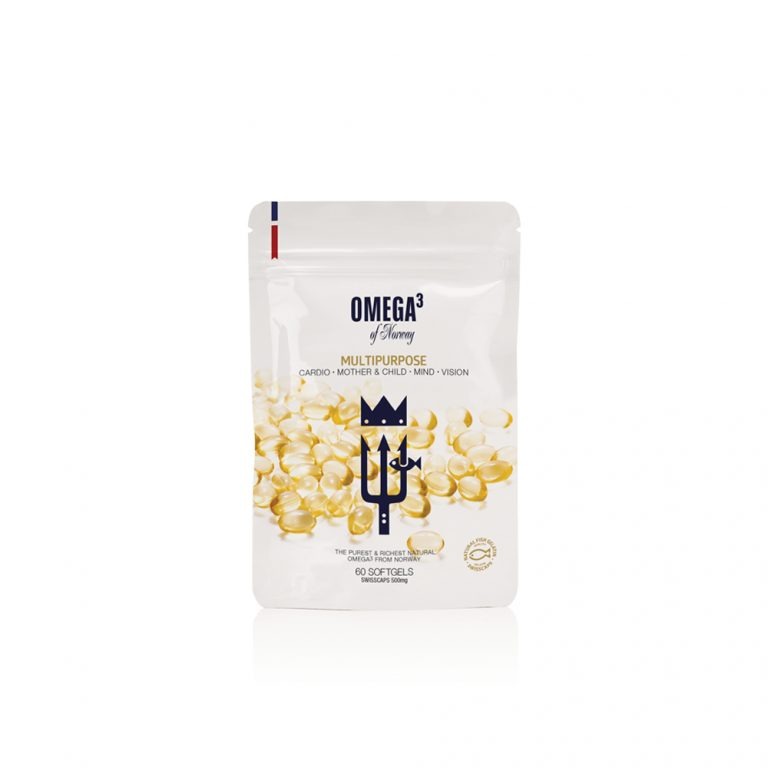Content
- How to take your omega – 3 supplement
- When to take your omega – 3 supplement
- How much omega – 3 supplement to take
- Conclusion
We have written a lot about why you should take omega – 3 – supplements: it is anti-inflammatory, good for your heart, skin and even your memory and brain! But in this article we also want to answer some practical questions about when, how and how much of those fatty acids you should include into your daily routine. If you have any questions about how to buy a high-quality supplement or how to store your omega – 3 capsules, we’ve written about that here and here.
So, let’s get started with the practicalities of taking your omega – 3 – supplement.
How to take your omega – 3
Your supplement might come in a liquid or capsule form. Here at Omega 3 of Norway we sell high-quality capsules including 500 mg of fish oil with a minimum of 65 % of EPA and DHA. Eicosapentaenoic acid (EPA) and docosahexaenoic acid (DHA) are the fatty acids that have the positive effects on our body such as helping to reduce inflammations, steadying our heart rhythm or improving our skin and memory. So, when buying a supplement, make sure you check for the concentration of those two fatty acids, as their concentration influences the efficiency of the supplement.
A Protective Capsule
We prefer to offer our products in capsules because this helps them to stay fresh longer as they are not exposed to air like the liquid form of fish oil that is sold in bottles. This exposure to oxygen can cause oxidation in the fish oil, which eventually leads to deconstructing the molecules and causing it to become rancid and go off. The capsule forms a protective layer around the oil and prevents oxidation for longer. Once your product has gone off, it should be tossed as consuming rancid fish oil can have negative impacts on your health.
Take your supplement with food
A commonly asked question is, if you can take omega – 3 – supplement on an empty stomach. While you can do that, researchers point out, that fatty acids are best consumed with food that contains a lot of fat, as this will stimulate the absorption of the omega – 3. We will talk about when to take your supplement below, but in general, if you skip breakfast or tend to eat low-fat-food for breakfast, it might be better to take your omega – 3 later in the day with a fuller meal.
When to take your omega -3
Consistency is key, so when you find a time of day that works for you, stick to it. To include additional vitamins or other nutrients in your diet is an important step towards increased well-being and a healthier life, so try to make it as easy for yourself as possible.
Stick to your schedule
However, research has shown that the time of day we take the supplement or other medication can impact its effect on us. Chronotherapeutics is the practice of administering drugs at certain times of the day to maximize their benefits. Recently studies have shown, that drugs such as aspirin or other cholesterol-lowering drugs, as well as blood pressure and anti-reflux medications may work better when taken at night. This is due to our internal clock and how different processes such as the absorption of medication in our body change throughout the day. As certain symptoms like the ones related to reflux or heart disease can worsen during the night, taking certain medication in the evening before going to sleep, can improve health conditions the following day.
Fats help to absorb omega – 3
Fish oil is one of the most common omega – 3 – supplement and can technically be taken any time of the day, as long as you take it at a similar time every day. However, they should be taken with a fatty meal to encourage and improve the absorption of the fatty acids in to our system. So, like we mentioned above, taking it with breakfast might not be the best option for you, if your breakfast typically consists of low-fat-foods. Taking it at night or with your lunch could be a better option and improve the effect of the EPA and DHA in your body.
Sleep better and wake up refreshed
Other advantages of taking your omega – 3 at night are the impact on inflammation and sleep quality. People suffering from joint pain or arthritis often experience the most intense symptoms in the morning. A French study shows, that nonsteroidal anti-inflammatory drugs (NSAID) are most effective when taken four to eight hours before the peak pain started. Since omega- 3 fatty acids follow a similar biochemical pathway as those NSAIDs, taking your fish oil supplement in the evening could make it easier for you to get out of bed in the morning. Other studies have also linked taking adequate intakes of omega – 3 to good quality rest, improved relaxation and a lower risk of sleep Apnoea.
How much omega-3 should I take daily
But how much is this “adequate intake”? Here the answer can vary greatly among different people. Because the amount of omega – 3 that you need depends on a number of factors such as diet, genetics, lifestyle, body weight, age and your health condition.
To each their own
This is also why the recommendations regarding the ideal daily doses by various health organizations varies a great deal. However, in general the recommended minimum amount ranges between 250 and 500 mg of EPA and DHA combined for healthy adults. However, if you have a certain health condition or are pregnant for example, this recommended dose can increase to up to 3000 mg per day. There are however downsides to taking too much omega – 3, as they work as a blood thinner and can lead to excessive bleeding. Therefore, you should not take more than 5000 mg daily and especially if you’re scheduled to have an operation, inform your doctor as you might have to stop taking the supplement a few weeks prior to the procedure.
Check the concentration of EPA and DHA
Another important factor is, how high the concentration of EPA and DHA are in the supplement you are taking. While there might be to products with the same volume of fish oil, what matters to reach your daily intake is not the volume alone but the concentration of the relevant fatty acids in it.
EPA and DHA, the essential fatty acids that are found in fish and other marine sources like krill, have a dose dependent effect. This means, that the effect of those fatty acids is related to the amount consumed, and studies have shown, that there is a certain threshold dose that must be met for the supplement to really take effect and make a difference. What this threshold is, again, depends on many personal factors such as your medical condition and general diet for example.
Conclusion
So, while you can technically take your supplement any time you want, there might be benefits to taking it at night. More importantly, taking it with a full meal as the fats in the other foods help your body to absorb the omega – 3 fatty acids as well. The amount of omega – 3 you should take every day depends greatly on your individual condition and needs. However, 250 to 500 mg of EPA and DHA combined are a good starting point, which corresponds to one capsule of our high-quality fish oil or krill oil supplements.
- take your supplement the same time every day
- take it with a full meal
- check the concentration of EPA and DHA
Whatever you decide, make sure you check the concentration of your food supplement to make sure you are getting value for your money and use a fish oil with a high concentration of the relevant fatty acids EPA and DHA like the products of Omega 3 of Norway. Our capsules contain an average of 65 % of EPA and DHA, so you can be sure to get real value for your money. Head over to our shop to browse our variety of fish oil and kill oil products and make the best decision for your health today!



















